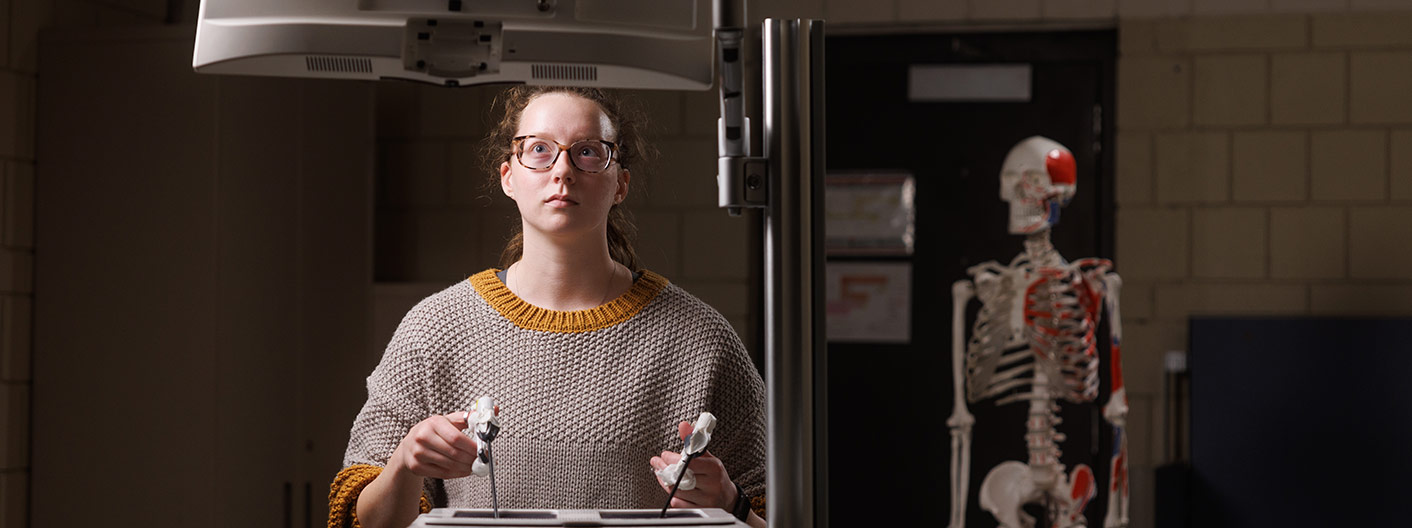Overview
The curriculum of biomedical engineering includes broad training in math, chemistry, physics, biology as well as engineering sciences such as thermodynamics, materials, fluid and solid mechanics and circuits. The curriculum also provides training in areas such as disease therapeutics and drug delivery, implants and tissue engineering, advanced diagnostics and biosensors, prosthetics and organ mechanics, medical device manufacturing, and medical imaging and equipment electronics. This training will culminate in lab and design courses that will emphasize a synthesis of these topics to design, build and test biomedical systems.
The curriculum will prepare students for a career in serving society through designing and manufacturing biomedical systems that improve human health. The curriculum will also prepare students to navigate difficult ethical questions through training in bioethics and will include broader training in the social sciences and humanities. This prepares graduates to better gauge the impact of biomedical engineering design decisions on broader society. Finally, graduates will be well-trained to communicate both with other technical colleagues as well as the broader public that benefits from the biomedical engineering products.

